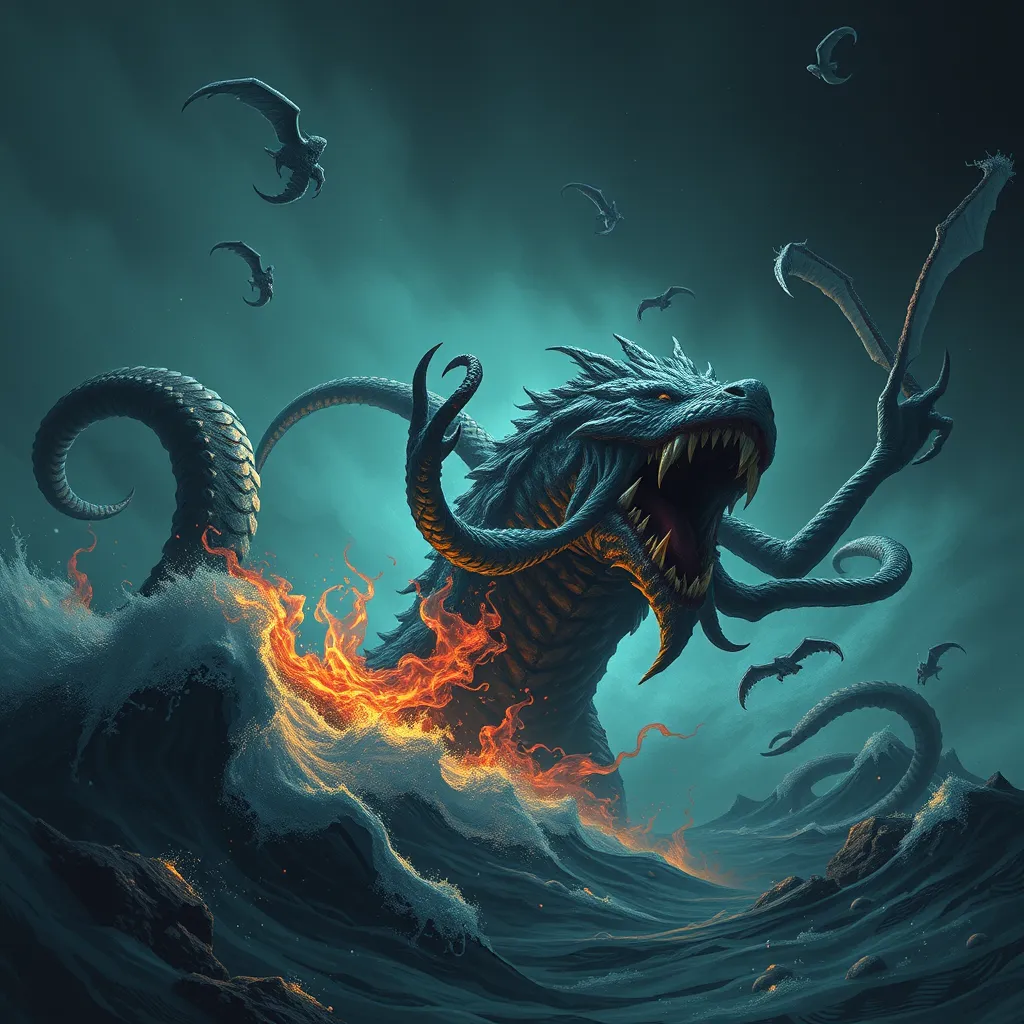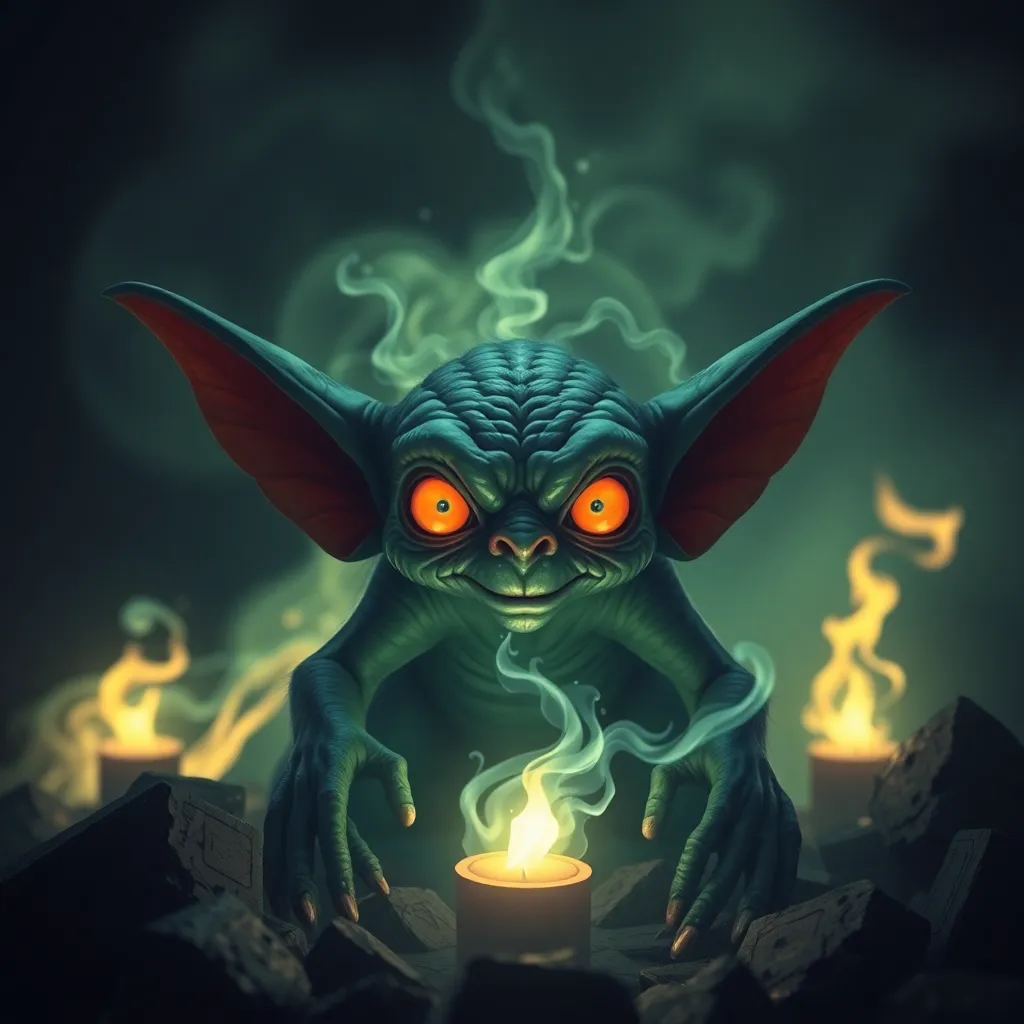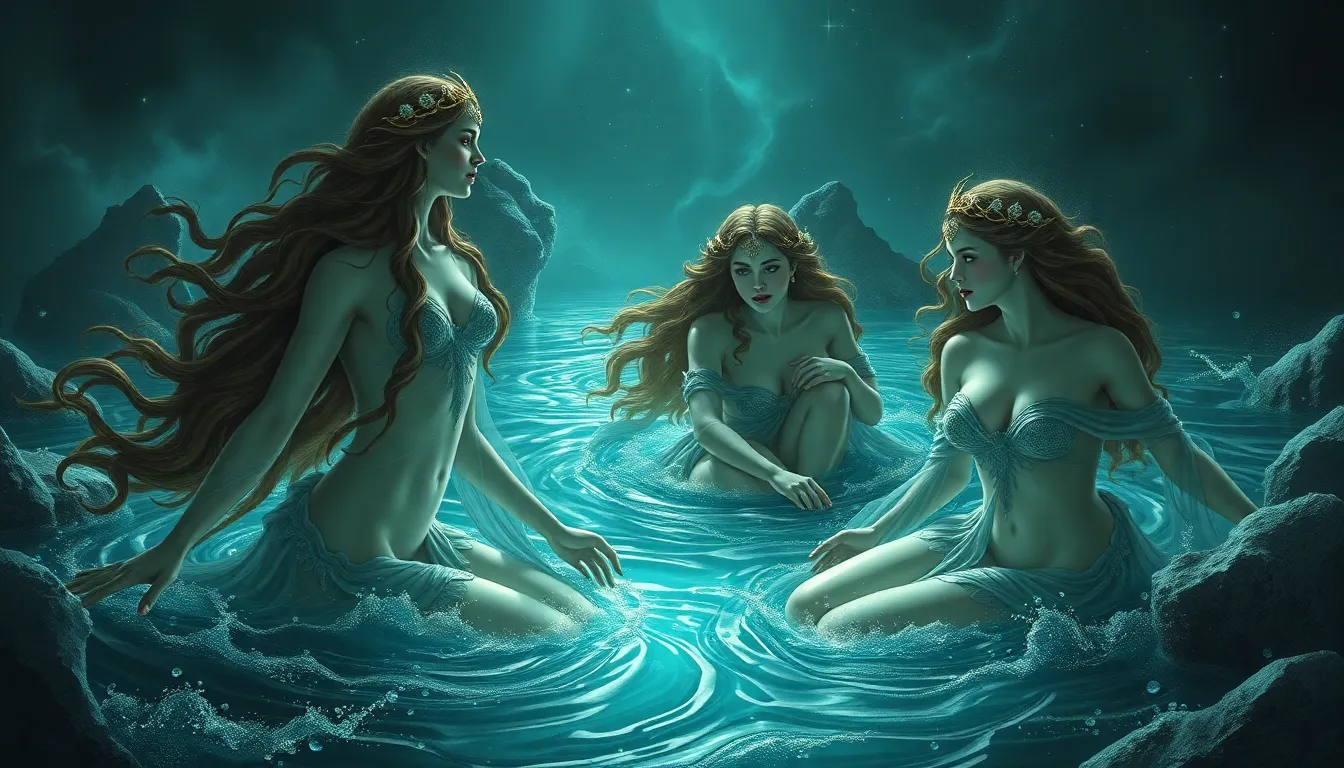The Kraken’s Wrath: Examining the Monster’s Role in Norse Sagas
I. Introduction
The Kraken, a legendary sea monster, has captivated imaginations for centuries, embodying the mysteries and dangers of the ocean. In Norse mythology, this creature symbolizes not only the perilous nature of the sea but also the cultural fears and beliefs of the Norse people. Monsters, such as the Kraken, play a crucial role in Norse sagas, serving as both antagonists and essential elements of the narrative. This article aims to delve into the significance of the Kraken within these sagas, exploring its role and symbolism throughout history.
II. The Origins of the Kraken Myth
The tale of the Kraken has historical roots that stretch deep into Norse culture. Accounts of sea monsters and mythical creatures have been documented in various forms, from sailors’ tales to ancient texts.
A. Historical accounts of sea monsters in Norse culture
Historical observations by explorers and fishermen often included descriptions of massive creatures lurking beneath the waves. These accounts contributed to the mythos surrounding the Kraken, blending fact with fiction.
B. Literary sources that mention the Kraken
Several literary sources reference the Kraken, including early texts such as:
- The Natural History by Pliny the Elder
- The Saga of the Greenlanders
- The Saga of Erik the Red
These works illustrate the pervasive belief in such creatures among Norse seafarers.
C. Evolution of the Kraken myth over time
As time passed, the image of the Kraken evolved, influenced by local oral traditions and the advent of maritime exploration. The Kraken transitioned from a feared beast to a complex symbol within Norse literature.
III. The Kraken as a Symbol of Nature’s Power
In Norse culture, the sea represented a formidable force, both vital and dangerous. The Kraken serves as a powerful metaphor for this duality.
A. The sea as a formidable force in Norse life
The Norse relied heavily on the ocean for resources, navigation, and trade. However, the sea was equally perilous, capable of swift destruction. This dichotomy is captured in the myth of the Kraken.
B. The Kraken representing the unpredictability of the ocean
The Kraken symbolizes the unpredictability of the sea, presenting an ever-present threat to sailors. Just as the ocean can be calm one moment and tumultuous the next, so too can the Kraken strike without warning.
C. Comparisons to other natural disasters in Norse mythology
Similar to other elements of Norse mythology, such as Fenrir the wolf and Jörmungandr the Midgard serpent, the Kraken embodies nature’s untamable aspects. These creatures serve as reminders of humanity’s vulnerability in the face of natural forces.
IV. The Kraken in Norse Sagas: Key Appearances
The Kraken makes notable appearances in various sagas, enriching the narratives with its presence.
A. Analysis of specific sagas featuring the Kraken
In sagas such as The Saga of the Greenlanders, the Kraken is depicted as a fearsome adversary that heroes must confront, showcasing both bravery and folly.
B. The Kraken’s interactions with gods and heroes
The Kraken also interacts with gods, such as Thor, representing a clash between divine power and primordial chaos.
C. Notable narratives and their implications
These narratives serve as cautionary tales, emphasizing the importance of respect for nature and the dire consequences of hubris.
V. The Psychological Impact of the Kraken
The Kraken evokes fear and awe, reflecting the internal struggles of the Norse people.
A. Fear and awe of the unknown in Norse culture
The unknown was a potent source of anxiety for the Norse, and the Kraken personifies this fear. Its monstrous size and the unpredictability of its attacks represent the unknown dangers that lurk beneath the surface.
B. The Kraken as a metaphor for internal struggles and fears
In a broader sense, the Kraken symbolizes internal conflicts, mirroring the fears and challenges faced by individuals within society.
C. Parallels with human emotions and societal challenges
Just as the Kraken wreaks havoc on the seas, human emotions can lead to turmoil if left unchecked, highlighting the importance of understanding and confronting our fears.
VI. The Kraken in Modern Interpretations
The legacy of the Kraken has persisted into modern culture, evolving alongside societal changes.
A. Influence of Norse sagas on contemporary literature and media
Norse sagas have influenced numerous modern works, including fantasy literature, films, and video games, where the Kraken often appears as a formidable creature.
B. The Kraken’s resurgence in popular culture
The Kraken has seen a resurgence in popular culture, from movies like Pirates of the Caribbean to video games like The Legend of Zelda. This revival reflects a growing fascination with mythical creatures.
C. How modern views of the Kraken differ from traditional depictions
Modern portrayals often romanticize the Kraken, depicting it as a misunderstood creature rather than a purely malevolent force, showcasing a shift in how we view nature and its monsters.
VII. The Kraken’s Legacy in Norse Literature
The Kraken’s influence extends beyond the sea; it has helped shape the cultural identity of the Norse people.
A. The importance of sea monsters in shaping Norse identity
Sea monsters like the Kraken have played a crucial role in forming a collective identity among Norse communities, symbolizing their relationship with the ocean and its mysteries.
B. The Kraken as a cultural icon in Scandinavian folklore
As a cultural icon, the Kraken has become synonymous with Scandinavian folklore, representing the rich tapestry of legends that characterize the region.
C. How the Kraken continues to inspire modern storytelling
The Kraken’s legacy endures, inspiring modern storytellers to explore themes of nature, fear, and the unknown, ensuring that this mythological beast remains relevant.
VIII. Conclusion
In conclusion, the Kraken holds a significant place in Norse sagas, representing the power of nature and the fears of the unknown. Its role as a cultural icon highlights the enduring nature of myth, reflecting humanity’s struggle to understand and coexist with the forces of the natural world. As we continue to grapple with our own fears and challenges, the Kraken serves as a reminder of the power of storytelling and its ability to connect us to our past.




